Wybierz język:
Zacznijmy od początków EUROIMMUN, czyli jak to wszystko się zaczęło. Co zachęciło Cię do stania się przedsiębiorcą? Czy od samego początku swojej kariery zawodowej planowałeś stworzenie firmy zajmującej się diagnostyką?
Jako student otrzymałem stypendium, które byłem zobowiązany spłacić po zakończeniu studiów. Biorąc pod uwagę fakt, że nie jestem w stanie ograniczyć swojego konsumpcjonizmu, pieniądze na spłatę pożyczyłem z banku. Dlatego też w trakcie pracy w laboratorium zacząłem przygotowywać mrożone skrawki, aby móc je sprzedawać i spłacić długi. Pojawiały się przy tym pomysły dotyczące wytwarzania mrożonych skrawków i poprawy warunków inkubacji. Jednak koszt prac rozwojowych i opłaty związane z postępowaniem przed Urzędem Patentowym przyczyniły się do zwiększenia mojego zadłużenia, dlatego nie pozostało mi nic innego, jak założyć firmę, dzięki której mógłbym zaciągać nowe, większe długi, by za nimi ukryć te stare. Zwykła praca nie pozwoliłaby mi tego osiągnąć.
Jak naukowiec odnalazł się w świecie biznesu? Czy możliwe jest połączenie tych dwóch pasji, czy raczej musisz skupiać się bardziej na jednej z nich? Jak to się stało, że naukowiec został przedsiębiorcą?
Już w domu rodzinnym zetknąłem się ze światem biznesu. Moi rodzice prowadzili w Rennersdorf przędzalnię, a później, po przeprowadzce do Bawarii, pralnię chemiczną. Zawsze pomagałem im w pracy i nauczyłem się co nieco o księgowości, organizacji przedsiębiorstwa i kadrach, a także rozwijaniu pomysłów na produkt. Kontakt z biznesem mam więc niemal od kołyski.
Jaką firmą miało być EUROIMMUN i czego od niej oczekiwałeś w 1987 r.? Czy 30 lat temu spodziewałeś się, że stanie się ona światowym liderem w dziedzinie badania przeciwciał? Co zaskoczyło Cię na przestrzeni tych lat?
Już w czasie, kiedy pracowałem na Uniwersytecie w Lubece, widoczne było, że BIOCHIPy oraz różne techniki inkubacji zyskają wielkie znaczenie gospodarcze, dlatego korzystny rozwój był już w pewien sposób przesądzony. Wciąż zadziwia mnie to, jak wiele osób udało mi się zachwycić moimi projektami i zainspirować do realizacji własnych pomysłów.
Jak zrodziły się technika Titerplane i mozaika BIOCHIP? Było to żmudne doskonalenie znanej metody, czy raczej olśnienie niczym „eureka!”? Powiedz, w jaki sposób idea staje się produktem.
W przypadku techniki Titerplane punktem wyjścia była metoda opisana niegdyś przez pana Tunga. Surowica umieszczona zostaje na szkiełku mikroskopowym, na którym kładzie się drugie szkiełko mikroskopowe z tkanką w taki sposób, aby tkanka została zanurzona. Odtworzyłem to za pomocą płytek reakcyjnych tak, że krople i tkanki ograniczone zostały hydrofobową obwódką. Pozwoliło to na inkubowanie 96 próbek na jednej płytce. Dzięki BIOCHIPom możliwe stało się równomierne rozmieszczenie skrawków tkanek na 96 polach płytki analitycznej, a ponadto można je z sobą zestawiać jak mozaikę, aby badać profile przeciwciał.
Kto miał na Ciebie wpływ, kiedy zaczynałeś swoją karierę? Kto był Twoim mentorem? Czego nauczyłeś się od tej osoby?
Przez kilka lat zajmowałem się diagnostyką autoimmunologiczną na Wydziale Medycyny Wewnętrznej Uniwersytetu w Lubece, gdzie miałem duże możliwości rozwoju. Kierownik Wydziału, prof. Peter C. Scriba, pozwolił mi samodzielnie podejmować decyzje. Odwiedzał mnie raz na trzy miesiące i za każdym razem wychodził zadziwiony. Od samego początku mogłem pracować nad własnymi pomysłami, a tym samym nie potrzebowałem mentora. Miałem jednak to szczęście, że w późniejszym czasie projekty realizowane były z udziałem wielu naukowców i twórców, którzy przyczynili się do osiągnięcia przez nas tak ogromnego sukcesu.
Prowadzeniu własnej firmy nieodzownie towarzyszą zarówno sukcesy, jak i porażki. Która z decyzji okazała się mieć kluczowe znaczenie dla Twojego biznesu?
Kluczowa była przede wszystkim decyzja o rezygnacji z kariery uniwersyteckiej i całkowite poświęcenie się biznesowi. W międzyczasie stworzyliśmy w firmie możliwość prowadzenia aktywności naukowej w stopniu, jakiego może nam pozazdrościć wielu profesorów uniwersyteckich.
Jakie momenty w 30-letniej historii firmy najbardziej zapadły Ci w pamięć?
Jeden z najważniejszych momentów miał miejsce w 1987 r., kiedy komisja składająca się z przedstawicieli różnych banków zatwierdziła mój pomysł na firmę. Początkowo zamierzałem ubiegać się o dofinansowanie w wysokości 500 000 marek niemieckich. Krótko przed przekazaniem dokumentacji, która była bardzo obszerna i kosztowała mnie wiele pracy, zdecydowałem się dopisać wszędzie zero. 5 mln marek niemieckich było wystarczającym kapitałem, aby rozpocząć realizację mojego projektu.
Patrząc z perspektywy czasu – co okazało się najtrudniejszym aspektem prowadzenia firmy?
Cieszyłem się, że mogę rozwijać ducha przedsiębiorczości poza uniwersytetem. Jedynych trudności, z jakimi przyszło mi się zmierzyć, przysparzały niektóre urzędy, które próbowały blokować nasze pomysły, aby w ten sposób udowodnić swoje znaczenie.
Czy, pracując nad rozwojem firmy, kiedykolwiek miałeś wątpliwości i chciałeś dać sobie spokój? Co Cię rozczarowało? Co rozzłościło? Co dzisiaj zrobiłbyś inaczej?
W 1990 r., niespełna trzy lata po założeniu firmy, mieliśmy mały spisek. Musiałem zwolnić z pracy technika, który posunął się do użycia siły wobec innego współpracownika. Technik, o którym mowa, był bardzo lubiany i doszło do „przewrotu pałacowego” oraz powołania rady zakładowej. Byłem zrozpaczony, ponieważ myślałem, że zakładając firmę, wpadłem z deszczu pod rynnę. Ostatecznie osoby zaangażowane w utworzenie rady zakładowej zostały zwolnione i od tamtej pory panuje spokój, a ja znowu mogę samodzielnie decydować o losach firmy.
Co zaskoczyło Cię w prowadzeniu firmy? Na co nie byłeś przygotowany? Czego musiałeś się szybko nauczyć?
Nigdy nie spodziewałem się, że firma będzie z roku na rok, bez wyjątku, zwiększać obroty. Co 5 lat odnotowywano ich podwojenie. Nie widziałem czegoś takiego w żadnej innej firmie. A spotykaliśmy na naszej drodze tysiące rzeczy, na które musieliśmy zareagować i znaleźć odpowiednie rozwiązanie – nikt nie jest przygotowany na radzenie sobie z tysiącem różnych rzeczy. Prawie w każdej sytuacji udawało nam się znaleźć właściwe rozwiązanie i dlatego firma jest tak duża. Dziś do każdego zadania mamy specjalistę, który dba o jego właściwe wykonanie.
Co ma kluczowe znaczenie dla sukcesów odnoszonych przez EUROIMMUN? Co Twoim zdaniem jest unikalne w firmie i determinuje jej sukces rynkowy?
Do osiągnięcia sukcesu konieczne jest przede wszystkim posiadanie dobrego pomysłu na produkt, ale równie ważne jest, aby pracownicy firmy byli odpowiednio traktowani i szanowani. W EUROIMMUN do wszystkich odnosimy się jednakowo. Jestem wdzięczny współpracownikom, że angażują się w realizację moich projektów i cieszą się z możliwości rozwoju w przyjaznym środowisku pracy. Zapewnienie opieki przedszkolnej i prowadzenie świetlicy dziennej dla dzieci umożliwia pracownikom zachowanie równowagi między życiem rodzinnym i zawodowym. W każdym z naszych miejsc pracy jest możliwość zjedzenia smacznego posiłku, a ponadto regularnie się spotykamy, aby wspólnie uprawiać sport, spędzać razem czas, obchodzić mniejsze i większe uroczystości, a także słuchać opery i koncertów.
Jakie główne wartości reprezentuje EUROIMMUN? Co stanowi o sile firmy?
Firma, na każdej płaszczyźnie, kładzie nacisk przede wszystkim na kompetencje. Bodźcem do działania nie jest dla nas osiągnięcie korzyści finansowych, które i tak odnotowuje się, gdy wszyscy realizują wspólne cele. Mamy to szczęście, że nasze produkty pozwalają zwalczać choroby i ratować życie. Poza tym, dzięki naszej pracy nawiązujemy międzynarodowe kontakty. Mamy trwałe relacje z przyjaciółmi na całym świecie.
Zdradź mi, z czego Ty czerpiesz w pracy najwięcej radości i satysfakcji? Z czego, po 30 latach prowadzenia firmy, jesteś najbardziej dumny?
Oczywiście cieszy nas każde trudne zadanie, jakie udało nam się wykonać – od standardowych technik inkubacji oraz udoskonalonych sposobów prowadzenia analiz, przez skomplikowane analizatory automatyczne po znajdowanie odpowiedzi na pytania naukowe.
Jeden z pierwszych momentów, kiedy poczułem się prawdziwie szczęśliwy, miał miejsce jeszcze przed założeniem firmy. W jednym z instytutów patologii wypróbowano moje aktywowane chemicznie szkiełko mikroskopowe. Patolodzy nie widzieli jeszcze tak pięknych struktur morfologicznych.
Inny przykład – latami bezskutecznie próbowaliśmy równomiernie rozprowadzić bakterie lub komórki na szklanej powierzchni. Nasz problem rozwiązał proces aktywacji fizykochemicznej szkiełek. Wiele z naszych substratów immunofluorescencyjnych bazuje na wynikach uzyskanych przypadkowo.
Chciałbym również wspomnieć o sukcesach naszych badań immunobiochemicznych: w neurologii, gastroenterologii, dermatologii, alergologii i serologii zidentyfikowaliśmy szereg autoantygenów, stworzyliśmy ich rekombinowane odpowiedniki i na tej podstawie opracowaliśmy systemy analityczne.
Dziś z kolei powszechnie dostępne są zautomatyzowane mikroskopy, które w ciągu sekundy automatycznie wykonują i analizują dwa zdjęcia.
Osiągnięciami, które dały nam tyle szczęścia, można by zapisać wiele stron.
Jakie wartości są dla Ciebie najważniejsze? Które z nich wcielasz w życie?
Przyjazna współpraca między członkami licznego grona naszych współpracowników i oczywiście sukces finansowy firmy, jak również aktywne życie kulturalne w obrębie firmy.
Który z Twoich talentów odegrał kluczową rolę w kształtowaniu firmy EUROIMMUN oraz w odniesieniu przez Ciebie sukcesu w biznesie?
Często udawało mi się mieć w pogotowiu nowe pomysły, rozpoznawać możliwości poprawy i opracowywać rozwiązania, a także identyfikować prawdziwe talenty wśród współpracowników lub kandydatów do pracy, którzy w szczególny sposób przyczynili się do sukcesów osiąganych przez firmę. I odstraszać niewłaściwych kandydatów.
Od kiedy pamiętam, w firmie EUROIMMUN pracują stale te same osoby – rotacja pracowników jest bardzo niewielka. Dlaczego Twoim zdaniem ludzie chcą latami pracować w EUROIMMUN?
Pracownicy traktowani są w godny sposób, a środowisko pracy zostało zaprojektowane tak, aby wszyscy mogli się czuć jak w domu.
Na co zwracasz szczególną uwagę, wybierając współpracowników? Jakie umiejętności mają kluczowe znaczenie dla Twojego biznesu? Co sprawia, że czujesz się rozczarowany ludźmi? Jakich osób starasz się unikać?
Dla mnie liczy się przede wszystkim to, aby moi współpracownicy byli nie tylko pracowici i inteligentni, ale także sympatyczni, żebym czuł radość, mogąc z nimi pracować. Kiedy poszukuję współpracownika, który miałby się spotkać z klientem, stawiam się w roli klienta i zastanawiam, co by on powiedział, gdyby osoba ta poprosiła go o rozmowę: „Przykro mi, ale w tej chwili nie mam czasu”, czy raczej: „Wprawdzie nie mam teraz czasu, ale z przyjemnością napiję się z Panem/Panią kawy”.
Najbardziej cenię współpracowników, którzy nie trzymają się pewnych utartych założeń, ale są otwarci na nowe pomysły lub mają własne. Oczywiście muszą oni być także w stanie współpracować z innymi. Istnieją jednak samotnicy, którzy potrafią samodzielnie rozwijać fantastyczne pomysły i osiągać ogromne sukcesy. Takich koryfeuszy należy identyfikować i przygotować dla nich odpowiedni grunt, który pozwoli im rozwinąć skrzydła.
W jakim kierunku powinna rozwijać się firma EUROIMMUN? Jakie trendy powinny w przyszłości stanowić czynnik wzrostu?
Będziemy rozszerzać naszą działalność we wszystkich kierunkach, mając na uwadze opracowywanie zarówno odczynników, jak i metod analizy oraz różnych urządzeń. Szczególną rolę odgrywać będą urządzenia typu random-access oraz w pełni zautomatyzowane mikroskopy, które opracowaliśmy i wyprodukowaliśmy od postaw, łącznie z soczewkami. Nowością jest histopatologia, która korzysta z wielu naszych innowacji w dziedzinie immunofluorescencji. Diagnostyka molekularna chorób genetycznych – w przypadku chorób dziedzicznych, nowotworów i chorób zakaźnych – będzie również wykazywała bardzo intensywny rozwój.
Przejdźmy teraz do pytań dotyczących Twojej drogi zawodowej. Jaką radę dałbyś samemu sobie 30 lat temu, kiedy zakładałeś EUROIMMUN?
Dziś wszystko zrobiłbym dokładnie tak, jak robiłem to w ciągu ostatnich 30 lat.
Co poradziłbyś tym, którzy zaczynają teraz działać w branży medycznej?
Nie należy patrzeć w pierwszej kolejności na pieniądze i osiągane zyski, ale korzyści dla ogółu. Ważne jest, aby stworzyć godne warunki pracy dla swoich współpracowników i nie odnosić się do nich w arogancki lub zarozumiały sposób.
Jaką książkę poleciłbyś każdemu przedsiębiorcy?
„Stilfibel” autorstwa Ludwiga Reinersa z 1951 r. (ostatnie wydanie w 2001 r.)(Książka dotycząca pisania w języku niemieckim: stylu, doboru słów, formułowania jasnych zdań, zbrodni językowych i gramatyki. Klasyka gatunku – przyp. M.K.-F.).
Najpierw byłeś naukowcem, potem zostałeś przedsiębiorcą, by na koniec połączyć obie ścieżki. Powiedz, co fascynuje Cię w nauce? Gdzie leży jej piękno?
Każdy naukowiec jest głodny wiedzy. Tak jak osoba grająca w skata chce wiedzieć, co kryje skat (karty zwrócone do stołu, które są przedmiotem licytacji – przyp. M.K.-F.), w podobny sposób naukowiec próbuje zbadać naturę od jej podstaw. Bardzo ważne jest, aby wszystkie błędy, z jakimi ludzkość nadal się boryka, zostały zniwelowane.
Jakie odkrycie lub zdarzenie ze świata nauki miało największy wpływ na powstanie EUROIMMUN?
Było to znakowanie fluorescencyjne przeciwciał przez Coonsa w latach 40. XX w. Położył on podwaliny pod immunofluorescencję pośrednią, która odniosła tak wielki sukces.
Jakie są według Ciebie najważniejsze odkrycia ostatnich 30 lat w dziedzinie autoimmunologii?
Istnieje wiele wielkich odkryć na polu autoimmunologii. Należy do nich m.in. odkrycie autoprzeciwciał przeciw białkom na powierzchni neuronów (AQP4, Lennon VA, 2005) i receptorów synaps neuronowych (NMDAR, Dalmau J, 2007).
Co Twoim zdaniem stanowi przełom w obecnych badaniach przeciwciał?
Opisanie niewiarygodnej różnorodności autoprzeciwciał, np. przeciw składnikom jąder komórkowych, aby test przesiewowy (immunofluorescencja) mógł wykryć wynik dodatni, a następnie różnicowanie go za pomocą różnych systemów bazujących na technikach blot, ELISA lub Bead.
Kto w świecie nauki jest dla Ciebie największym autorytetem?
Pośród ogromu wielkich naukowców nie można wyłonić jednego, którego określiłoby się mianem największego autorytetu. Moim zdaniem duży wpływ miał Karol Darwin. Bardzo lubię też mojego polskiego przyjaciela, Jana Żeromskiego.
Na koniec chciałabym Ci jeszcze zadać kilka pytań osobistych. Stworzenie i prowadzenie firmy to ogromne wyzwanie i odpowiedzialność. Poświęciłeś swoje życie budowaniu EUROIMMUN. Co jest dla Ciebie najcenniejsze w firmie?
Na budowaniu firmy spędziłem tylko połowę życia, a nie całe. Najdroższa okazała się budowa nowego baru w piwnicy domu numer 2 w Lubece.
Z czego musiałeś zrezygnować, powołując do życia firmę EUROIMMUN? Co straciłeś, prowadząc interesy? Jaką cenę musiałeś za to zapłacić? Czy było warto?
Przede wszystkim musiałem zawiesić swoją karierę naukową i czekać na kontynuowanie badań 20 lat, aż firma będzie pewnie stała na nogach. Ostatecznie udało mi się to zrekompensować, więc nie mam poczucia, że zapłaciłem za to jakąkolwiek cenę. Wręcz przeciwnie! Czuję się niezwykle obdarowany przez los – dzięki zadowolonym klientom, dzięki dziesiątkom tysięcy pacjentów, których pomogliśmy zdiagnozować, dzięki przyjaźni ze współpracownikami i udziałowcami, a także dzięki odnoszonym sukcesom finansowym.
W jaki sposób dystansujesz się od pracy?
Moje mieszkanie znajduje się w budynku, w którym mieści się firma, co bardzo mnie cieszy, ponieważ w sekundę mogę znaleźć się w biurze. Większość swojego czasu spędzam w Internecie i uważam, że jest to cudowny sposób komunikowania się, także w czasie prywatnym. Czasami chodzę na koncerty, co niestety wiąże się z koniecznością wyłączenia smartfonu. Mogę wtedy jednak zamknąć oczy i wymyśleć nową technikę prowadzenia analiz. Od czasu do czasu jeżdżę na nartach. Często łączę podróże służbowe z realizacją prywatnych przedsięwzięć. Właściwie nie mam potrzeby dystansowania się od pracy.
W jaki sposób odpoczywasz?
Wieczorem siadam przed telewizorem i włączam wiadomości, a 5 minut później zapadam w głęboki sen. Kilka godzin później przenoszę się do łóżka.
Jak brzmi tytuł Twojej ulubionej opery?
Jest 5 oper, które szczególnie mi się podobają. Są to: „Traviata”, „Cyganeria”, „Lohengrin”, „Tosca” i „Fidelio”. 50 innych oper urzeka mnie równie mocno. Ponadto jestem oczarowany wieloma utworami chóralnymi autorstwa Bacha, Mozarta, Verdiego, Händla i innych kompozytorów, które sam wykonywałem jako członek chóru.
Dziękuję za rozmowę.
Rozmawiała: Małgorzata Klimczak-Filippowicz
Everything you always wanted to know about Winfried
Interview with founder and CEO of EUROIMMUN AG – Professor Winfried Stöcker.
Let’s start with the early days of EUROIMMUN and how it all started. What made you choose the career path of an entrepreneur? Were you planning to create a diagnostics business at the very beginning of your professional career?
As an undergraduate I got a scholarship which I had to repay after my graduation. Since I do struggle to rein in my consumptionism, I had to take out a bank loan to pay off the scholarship. So, while working in a lab, I began preparing frozen sections for sale to cover my debts. At roughly the same time I got this idea to produce frozen sections and enhance their incubation conditions. However, the cost of R&D and processing my patent application at the Patent Office added to my debts so I had no choice but to set up a business of my own, which would let me run new and higher debts to obscure the old ones. I could never have pulled it off with a regular job.
How did a scholar adapt to the world of business? Is it possible to merge both of your passions or did you have to focus on one of those? How did a scholar turn businessman?
It was at my family home that I had my first experience of the business world. My parents ran a spinning mill in Rennersdorf and later, having moved to Bavaria, a dry cleaner’s. I would always help them at work and learnt some bookkeeping, business organisation and personnel essentials, and also a thing or two about product development. So I have been in the business environment since I was born, actually.
What type of business was EUROIMMUN supposed to be and what were your expectations of it in 1987? Did you expect 30 years ago that it would turn into a global leader in antibody research? What surprised you the most through all those years?
As early as the time I was working at the University of Lübeck it was apparent that BIOCHIPs and various incubation techniques have an enormous economic importance, so the favourable growth environment of the company was somewhat determined by that fact. I have always been amazed at how many people I have managed to woo with my projects and inspire them to work on their own ideas.
How were such techniques as Titerplane and BIOCHIP mosaic developed? Were they the result of consistent honing of a well-established method, or the results of an epiphany, like a „Eureka!” moment? Tell me how an idea is developed into a final product.
Speaking of Titerplane, it originated in a method established by Mr Tung. You place serum on a microscope slide and put another slide with tissue on top of it in such a way that the tissue is immersed. I recreated it with reaction plates in such a way that droplets and tissues were confined with a hydrophobic encasement. That allowed me to incubate 96 samples on a single plate. BIOCHIPs made it possible to evenly distribute tissue sections in the 96 wells of a plate. Moreover, you can also group those together like a mosaic to analyse antibody profiles.
Who inspired you at the dawn of your career? Who mentored you? What did you learn from that person?
I worked in the area of autoimmune diagnosis at the Faculty of Internal Medicine of the University of Lübeck, where I had lots of opportunity for growth. The Dean, Prof. Peter C. Scriba, allowed me to make my own independent decisions. He would visit me quarterly and always leave absolutely stunned. I could work on my own ideas since the very beginning and I didn’t need a mentor as such. I was also fortunate enough to have been a part of projects involving lots of researchers and creators, who contributed immensely to us having grown so amazingly successful.
Running a business of your own is inextricably linked to enjoying success as well as experiencing failure. Which of the decisions you have made turned out the paramount one for your business?
My personal turning point was definitely giving up on my university career and committing myself entirely to business. In the meantime we made sure the business offered exciting research opportunities to a degree coveted by a number of university professors.
Which moments of the 30-year-long history of the business have actually come to the fore?
One of such turning points was in 1987, when a committee made up of a variety of banking representatives approved my business plan. Initially I was going to apply for a subsidy of 500k Deutsche Marks. Just before filing the documentation, which was rather comprehensive, with the authorities, I decided to add a zero to all the numbers. 5m Deutsche Marks was enough capital to move on to the delivery stage of my project.
In hindsight – what proved the most challenging aspect of running a business?
I was glad I could support the entrepreneurial community outside the university with my humble contribution. The only stumbling blocks I have ever encountered were thrown in our way by some of the authorities, which were trying to block some of our initiatives just to wield their clout.
Nurturing the growth of the business, have you ever had a serious moment of doubt and thought it was time to give up? What disappointed you the most? What got you quite exasperated? What would you go about in a different way today?
In 1990, just under three years on since I set up the business, we had a bit of a mutiny in our ranks. I had to let go of a technician who’d resolved to violence towards a colleague. The technician in question enjoyed huge popularity and there was a coup and a work council was established by the rebels. I was desperate as I believed at the time that my having set up the business was a case of out of the frying pan into the fire. Eventually, the ones involved in setting up the committee were sacked and it has been all quiet on the western front ever since, and I can make decisions on the future of the business on my own.
What surprised you about running a business? What caught you off guard? What were the steep learning curves involved?
I had never expected the business to grow in revenue year on year all the time. We have been doubling our revenue every five years. I have never seen it in any other business in the industry. And we’ve had thousands of things thrown in our way that we had to respond to pronto and work out a solution to – I reckon no one is ever prepared to handle thousands of different things. We managed to work out the right solution to almost each of those situations and that is why the business has grown so large. These days we have a specialist for all sorts of tasks and they make sure all the tasks are handled right.
What is the key to the success enjoyed by EUROIMMUN? What do you think is unique to this company and determines its commercial success?
To succeed in business, you must have a good idea for a product, but you mustn’t forget that your staff need to be treated right and respected. We treat everyone in the same, equal, way at EUROIMMUN. I owe it to my colleagues that they commit themselves to deliver my projects and enjoy the growth opportunities in a friendly work environment. As we provide pre-school childcare and run a daytime common room for children, the staff have a genuine opportunity to strike a work-life balance. Each of our workplaces offers delicious meals at a staff canteen, we meet regularly to do sports and spend time together, celebrate more and less prominent occasions, go to the opera or to a concert.
What core values are represented by EUROIMMUN? What determines your company resilience?
This business focuses on competence on all levels. We get motivated not by financial incentives, which we enjoy anyway, but by everyone delivering on our goals. We are quite lucky in a way as our products help combat diseases and save lives. Besides that, we do a lot of international networking through our jobs. We have really solid relationships with a lot of close friends all over the world.
Would you lift the lid off what brings you the most joy and satisfaction? What are you proud of the most after thirty years of running your business?
We obviously draw a lot of pleasure from each of the challenging projects that we have managed to deliver – starting with standard incubation techniques and enhancing analytical methods, through complex automated analysers, and to working out answers to strictly scientific questions.
One of the first moments I felt truly happy was before I set up this business. A pathology institute was testing my chemically activated microscope slides. The pathologists working there had never seen such beautiful morphological structures.
Another example – for years we’d been trying to spread bacteria or cells evenly on a glass surface, but in vain. We used chemical activation and polarisation for that later on and it proved to be just the thing we needed. A number of our immunofluorescent substrates draw on results we just stumbled on by pure chance.
I would also like to mention the successes of our immunobiochemical research efforts: in neurology, gastroenterology, dermatology, allergology and serology, we have identified a number of autoantigens, developed their recombinant equivalents and, based on the latter, advanced corresponding analytical systems.
Also, automatised microscopes are commonplace today – they automatically take and analyse two photos in a single second.
We could actually write a book on the advances that have brought us lots of happiness and satisfaction.
What are your fundamental values? Which of those do you live by every day?
I value friendly cooperation among our numerous business partners, the financial success of the company – no surprises there – and active cultural life within the company.
Which of your talents played a key part in the shaping of EUROIMMUN and becoming a business success story?
I have often managed to have new ideas, identify product enhancement opportunities and develop solutions, and to spot talent amongst our staff and candidates, who have particularly contributed to the overall success of the company. Oh, and I have managed to drive the wrong candidates away.
Ever since I remember, EUROIMMUN has had the same staff – there is very little staff turnover. Why – would you say – do people want to work at EUROIMMUN for years?
The staff feel treated in a decent way and the workspace has been designed in such a way that everyone can feel at home here.
What do you particularly focus on while choosing your associates? Which skills are fundamental for your business? What disappoints you in people? What personality types do you try to avoid?
For me the thing that really matters is that my colleagues are not only committed and bright but also good fun, and that I can actually enjoy working with them. When I look for a person to meet a client, I imagine myself to be the client and what they would think if that specific person invited the client to a meeting: „Sorry, I’m a bit busy, actually”, or: „I’m terribly sorry but I’m busy at this very moment. But I can’t wait to have a cuppa with you”.
I particularly appreciate the staff who won’t just stick to the beaten track but are open to new ideas or they contribute some of their own. Naturally, they also need to be able to work together with other people. But there are also some lone wolves who can independently develop brilliant ideas and achieve huge success. Such leaders need to be spotted and nurtured to allow them to truly spread their wings.
Which way should EUROIMMUN now follow? Which trends do you expect to be the growth factors of the future?
We will advance our activity in all possible directions, speaking of reagent development, analytical methods and devices. I believe random-access devices should play a particularly prominent role in the future, just like fully automated microscopes, which we developed from scratch, including the lenses. An interesting novelty is the use of our many innovations in immunofluorescence in histopathology. Molecular diagnostics of genetically linked disorders for infectious diseases, neoplasms and hereditary diseases will also see dramatic growth.
Let’s move on to the questions about your career path. What advice would you have given yourself 30 years ago while setting up EUROIMMUN?
Frankly speaking, I would do everything the same today just the way I did that in the last thirty years.
What would you advise to those who are dipping their toes in the medical industry?
You shouldn’t look at money first, but at how you could possibly benefit mankind. It is important to create a decent workspace for your staff and not be rude to them or self-important with them.
What book would you recommend to all entrepreneurs?
Stilfibel by Ludwig Reiners, published in 1951 (the most recent edition published in 2001) (A style guide to written German dwelling on such aspects of the language as style, choice of vocabulary, building clear sentences, grammar and language offences. A timeless classic – note by M.K.-F.).
You set off as a scientist only to become an entrepreneur, and to finally merge the two career paths. Tell me, what do you find fascinating in science? Where’s the beauty in it?
Each and every researcher has got this thirst for knowledge. It’s just like a skat player who wants to find out what the skat is (the cards facing down being the bidding subject – note by M.K.-F.) – this is how a scientist tries to get to the bottom of how the world works. It is fundamental that all the ailments that have long been troubling humankind are minimised.
Which discovery or event in the world of science had the biggest influence on the creation of EUROIMMUN?
It was the fluorescent antibody tagging developed by Coons in the 1940s. He laid the foundations for indirect immunofluorescence, which has enjoyed so much success.
What would you say were the key advances in autoimmunology in the last 30 years?
There have been many advances in autoimmunology. Some of the key ones were the discovery of protein antibodies on neuron surfaces (AQP4, Lennon VA, 2005) and neurone synapse receptor surfaces (NMDAR, Dalmau J, 2007).
What in the current research do you think is going to be a breakthrough?
It is the description of the incredible diversity of antibodies, e.g. cell subnuclear antibodies so that a screening test (immunofluorescence) could return a positive result, and its follow-up discrimination with a variety of systems based on such methods as Blot, ELISA or Bead.
Who is your personal authority in science?
Amongst the vast collection of eminent scientists it is nigh on impossible to single out the one who was or has been the biggest authority of them all. I would say Charles Darwin had a lot of influence on science. I also like my Polish friend, Jan Żeromski, a lot.
I would like to ask you some personal questions as we’re nearing the end. Setting up and running a business means assuming immense responsibility. You have dedicated your life to developing EUROIMMUN. What’s the most valuable thing about the company for you?
Well, I have only spent half my life building this business, actually. The thing that proved the most expensive was building a new bar in the basement of my second home in Lübeck.
Did you have to give up anything while breathing air into EUROIMMUN? What did you lose while running the business? What was the price you had to pay for it? Was it worth it?
First of all I had to give up on my scientific career and wait 20 years until I could resume research, as I wanted the business to have solid foundations first. In the end, I have managed to compensate for the break so I don’t have this feeling that there has been a price to pay. Quite the contrary! I feel unusually gifted by fate – I owe it all to satisfied customers, tens of thousands of patients we have helped diagnose, the friendships I share with my colleagues, business partners and shareholders, and also to the overall financial success.
How do you take a break from work?
My flat is in the same building as the company, which is great as I can get in the office in no time at all. I’m online most of my time as I believe it’s a brilliant way to communicate with people, also during leisure time. I sometimes go to concerts, which carries the discomfort of having to switch off my smartphone. Still, I can close my eyes then and get carried away thinking up a new analytical method. I have been skiing for some time now, too. I often combine business travel with my private interests. I don’t have this need to take a break from work, actually.
How do you recharge your batteries?
I slump on the sofa in front of the TV in the evening and you’ll find me fast asleep 5 minutes later. A few hours later I’ll move to bed.
What’s your favourite opera?
There are five that I particularly like, i.e. La traviata, La bohème, Lohengrin, Tosca and Fidelio. But I find like myself equally enchanted by like 50 other ones, too. I absolutely adore lots of choir pieces by Bach, Mozart, Verdi, Händel and other composers – I used to sing them myself in a choir.
Thank you for the interview.
Interviewer: Małgorzata Klimczak-Filippowicz
Ein biotechnologisches Imperium aufgebaut dank … Schulden
Interview mit Prof. Dr. med. Winfried Stöcker, Gründer und Geschäftsführer der EUROIMMUN AG.
Lass uns bitte mit den Unternehmensanfängen beginnen. Was hat Dich dazu bewogen, Unternehmer zu werden? Hast Du schon immer geplant, ein Diagnostikunternehmen zu gründen?
Ich habe als Student ein Stipendium erhalten, welches ich nach dem Studium zurückzahlen musste. Weil ich unfähig bin, mich in meinem Konsumverhalten einzuschränken, habe ich mir das Geld für die Tilgung bei einer Bank geborgt. Deshalb habe ich im Laufe der Laborarzttätigkeit angefangen, Gefrierschnitte herzustellen, um sie zu verkaufen und meine privaten Schulden loszuwerden. Dabei habe ich einige Ideen gehabt, Gefrierschnitte herzustellen und die Inkubation zu verbessern. Allerdings haben die Entwicklungskosten und Patentgebühren meinen Schuldenberg immer weiter vergrößert, sodass mir zum Schluss nichts anderes übrig blieb, als eine Firma zu gründen, um neue, größere Schulden aufzunehmen, hinter denen ich die alten verstecken konnte. Mit redlicher Arbeit hätte ich das nicht geschafft.
Wie bist Du als Wissenschaftler mit der Wirtschaftswelt zurechtgekommen? Ist es möglich, diese zwei Leidenschaften miteinander zu verbinden, oder musstest Du dich auf eine konzentrieren? Was hat den Wissenschaftler zum Unternehmer gemacht?
In meinem Elternhaus konnte ich Einblick in der Geschäftswelt gewinnen. So haben meine Eltern in Rennersdorf eine Spinnerei betrieben, und später nach dem Umzug nach Bayern eine chemische Reinigung. Immer habe ich im Elternhaus mitgeholfen und etwas über Buchführung, Betriebsorganisation und Personalwesen gelernt, und wie man Produktideen entwickelt. Also ist mir die Geschäftstüchtigkeit in die Wiege gelegt worden.
Was für ein Unternehmen sollte EUROIMMUN werden? Was hast Du 1987 von Deiner Firma erwartet? Hast Du vermutet, als Du vor 30 Jahren das Unternehmen gründetest, dass es zum Weltmarktführer im Bereich der Autoantikörperdiagnostik aufsteigen würde? Was hat Dich im Wandel der Jahre überrascht?
In der Zeit meiner Anstellung an der Lübecker Universität war bereits absehbar, dass die BIOCHIPs und die verschiedenen Inkubationstechniken große wirtschaftliche Bedeutung erlangen würden, sodass die günstige Entwicklung vorgezeichnet war. Auch heute staune ich noch darüber, dass es mir gelungen ist, so viele Mitarbeiter von meinen Projekten zu begeistern und sie dazu zu bringen, mit gleicher Freude wie ich unternehmerisch tätig zu sein.
Wie wurden die Ideen von Titerplane und BIOCHIP geboren? War das ein langwieriger Prozess oder ein Einfall aus heiterem Himmel, wie ein EUREKA? Erzähl uns, wie eine Idee Produkt wird.
Bei der Titerplane-Technik bin ich von einer Methode ausgegangen, die ein Herr Tung einst beschrieben hat. Serum wird auf einen Objektträger getropft und ein zweiter Objektträger mit Gewebe darauf gelegt, dass das Gewebe eintaucht. Das ganze habe ich mit Reaktionsplatten nachgemacht, bei denen die Position der Tropfen und Gewebe durch eine hydrophobe Umrandung begrenzt war. So war es möglich, 96 Proben auf einer Platte nebeneinander zu inkubieren. Auf die BIOCHIPs bin ich gekommen, weil es nicht möglich war, 96 Felder einer Analyseplatte gleichmäßig mit Gewebeschnitten zu beschichten. Das ist natürlich mit den BIOCHIPs bestens gelungen, wobei sich als zusätzlicher Vorteil erwiesen hat, dass man die BIOCHIPs als Mosaike zusammensetzen kann, um Antikörper-Profile zu untersuchen.
Wer hat Dich am Anfang Deiner Karriere am meisten beeinflusst? Wer war Dein Mentor? Was hast Du von dieser Person gelernt?
Ich durfte mehrere Jahre in der Klinik für Innere Medizin an der Lübecker Universität Autoimmundiagnostik durchführen und diese Ideen ausbrüten. Der Klinikchef war Prof. Dr. Peter C. Scriba. Er ließ mich frei walten und schalten, ohne sich einzumischen, er kam nur alle drei Monate einmal vorbei, um ein wenig zu staunen. Ansonsten konnte ich anfangs auf meinen eigenen Ideen aufbauen, und es bedurfte keines Mentors. Aber ich hatte das Glück, dass später viele Wissenschaftler und Entwickler an den Projekten beteiligt und zu unserem großen Erfolg beigetragen haben.
Geschäft zu führen bedeutet beides: sowohl Erfolge als auch Niederlagen. Welche Entscheidung hat sich für Dein Geschäft als ausschlaggebend erwiesen?
Crucial war die Entscheidung, erst einmal meine Universitätskarriere aufzugeben und mich voll und ganz um das Geschäft zu kümmern. Inzwischen haben wir uns in der Firma die Möglichkeit geschaffen, wissenschaftlich tätig zu sein, in einem Umfang, um den uns mancher Universitätsprofessor beneiden kann.
Was sind die größten Momente in der 30-jährigen Firmengeschichte?
Einer der größten Momente bestand darin, dass 1987 eine Kommission verschiedener Banken meinem Firmengründungskonzept zugestimmt hat. Damals habe ich zuerst eine Finanzierung von 500.000 DM beantragen wollen. Kurz vor der Abgabe der Unterlagen, die so umfangreich waren und so viel Mühe gemacht hatten, habe ich mich entschieden, den Zahlen überall eine Null dranzuhängen. Mit 5 Mio. DM war dann ausreichend Kapital vorhanden, die Entwicklungsvorhaben und das Geschäftsmodell zügig in Bewegung zu setzen.
Wenn Du von dieser langen Zeitperspektive zurückblickst, was war am schwierigsten dabei, die Firma zu betreiben?
Ich war froh, mich außerhalb der Universität frei unternehmerisch entfalten zu können. Die einzigen Schwierigkeiten bestanden immer nur darin, dass ich mich gegen manche Behörden durchsetzen musste, die, wo es nur ging, unsere Entwicklung behindern wollten, um dadurch ihre Wichtigkeit unter Beweis zu stellen.
Hast Du bei der Entwicklung des Unternehmens je Zweifel gehegt? Wolltest Du es je aufgeben? Was hat Dich enttäuscht? Was hat Dich verärgert? Was würdest Du heute anderes machen?
1990, knapp drei Jahre nach der Gründung des Unternehmens, hat es in der Firma eine kleine Verschwörung gegeben, weil ich einem Techniker kündigen musste, der Gewalt gegen einen anderen Mitarbeiter angewendet hatte. Der Techniker war allerdings bei seinen Kollegen sehr beliebt, sodass es eine Palastrevolution gab und ein Betriebsrat gegründet wurde. Damals war ich sehr verzweifelt, weil ich glaubte, mit der Gründung der Firma vom Regen in die Traufe gekommen zu sein. Es gelang mir aber, die am Betriebsrat beteiligten Personen aus der Firma herauszukündigen, und seitdem herrscht Frieden, ich war wieder in der Lage, über das Schicksal der Firma selbst zu bestimmen.
Was hat Dich beim Betreiben des Unternehmens überrascht? Worauf warst Du nicht vorbereitet? Was musstest Du am schnellsten lernen?
Ich hatte nicht erwartet, dass die Firma ohne Ausnahme von Jahr zu Jahr an Umsatz zunehmen würde. Alle 5 Jahre war eine Verdopplung zu verzeichnen. Ich habe so etwas bei anderen Unternehmen noch nie gesehen. Und es waren tausend Dinge, auf die man reagieren und für die man Lösungen finden musste, d.h. man ist auf tausend Dinge nicht vorbereitet. Lösungen zu finden ist uns aber nahezu überall gelungen, zumal die Firma inzwischen ja so groß ist, dass wir für jede Aufgabenstellung einen Spezialisten zur Verfügung haben.
Was ist der eigentliche Schlüssel zum Erfolg von EUROIMMUN? Wie meinst Du, was ist bei EUROIMMUN einmalig und für ihren Markterfolg ausschlaggebend?
Abgesehen davon, dass man ein paar gute Produktideen bei der Unternehmensgründung haben musste, spielt es eine große Rolle, dass die Mitarbeiter in der Firma anständig behandelt und respektiert werden. Wir begegnen uns auf Augenhöhe, ich bin den Kollegen dankbar, dass sie an meinen Projekten mitwirken und sie freuen sich über die Möglichkeit, sich in einer schönen Arbeitsumgebung entfalten zu können. Mit Kindergarten und Kinderhort ist dafür gesorgt, dass die Kollegen Familie und Beruf wunderbar in Einklang bringen können. In allen unseren Arbeitsstätten gibt es etwas Ordentliches zu essen und wir treffen uns regelmäßig gemeinsam zu Sport, Freizeit und kleinen und großen Feiern, Opern und Konzerten.
Was sind die wichtigsten Werte von EUROIMMUN? Was macht die Firma stark?
In der Firma wird in allen Richtungen großer Wert auf Kompetenz gelegt. Wir arbeiten nicht in erster Linie für den pekuniären Gewinn, der sich ohnehin von selbst positiv entwickelt, wenn alle an einem Strang ziehen. Und wir haben das Glück, mit unseren Produkten Krankheiten bekämpfen zu können und Leben zu retten. Außerdem beschert uns die Arbeit internationale Kontakte, wir haben Freunde auf der ganzen Welt, mit denen wir in ständigem Austausch sind.
Sag uns bitte, was freut Dich am meisten bei der Arbeit und was gibt Dir die größte Genugtuung? Worauf bist Du nach den 30 Jahren seit der Firmengründung besonders stolz?
Natürlich freuen wir uns über jede knifflige Aufgabe, die wir gelöst haben. Das beginnt bei den standardisierten Inkubationstechniken und den perfektionierten Analyseverfahren, und geht weiter mit den kompliziertesten Analyseautomaten und den gelösten wissenschaftlichen Fragestellungen.
Einen meiner ersten großen Glücksmomente erlebte ich, als noch vor der Firmengründung in einem pathologischen Institut meine chemisch aktivierten Objektträger ausprobiert wurden: Die Pathologen hätten noch nie so schöne morphologische Strukturen gesehen.
Eines von vielen anderen Beispielen: Wir haben jahrelang vergeblich versucht, Bakterien oder Zellen gleichmäßig auf einer Glasoberfläche auszustreichen. Dann haben wir ein Elektropolierverfahren ausprobiert – und es klappte auf Anhieb. Viele unserer Immunfluoreszenz-Substrate basieren auf diesem Zufallsergebnis.
Ein anderes Beispiel sind die Erfolge unserer immunbiochemischen Forschung: In Neurologie, Gastroenterologie, Dermatologie, Allergologie und Infektionsserologie konnten wir eine Vielzahl neuer Autoantigene identifizieren, sie rekombinant darstellen und Testsysteme daraus entwickeln.
Heute können der Allgemeinheit automatisch arbeitende Mikroskope zur Verfügung, die pro Sekunde zwei Bilder vollautomatisch aufnehmen und auswerten können.
Man könnte Seiten mit solchen Errungenschaften füllen, die uns so viel Glück beschert haben.
Welche Werte sind für Dich am wichtigsten? Welche von ihnen pflegst Du in Deinem Berufsleben?
Die freundschaftliche Kooperation innerhalb unseres großen Kollegenkreises und natürlich auch der finanzielle Erfolg des Unternehmens sowie das aktive Kulturleben innerhalb der Firma.
Wie glaubst Du, welches Deiner Talente war für den Aufbau von EUROIMMUN und Deinen Erfolg als Geschäftsmann von besonderer Bedeutung?
Mir ist es oft gelungen ist, neue Ideen bereitzuhalten, Verbesserungspotentiale zu erkennen und Lösungen zu entwickeln, und auch, Talente zu identifizieren, unter den Kollegen oder bei den Bewerbern, die für die Entwicklung des Unternehmens besonders erfolgreich sind. Und ungeeignete Bewerber fernzuhalten.
Seitdem ich mich erinnern kann, arbeiten immer dieselben Leute für Dich bei EUROIMMUN – die Mitarbeiterfluktuation ist niedrig. Wie denkst Du, warum wollen die Menschen bei EUROIMMUN jahrelang arbeiten?
Die Mitarbeiter werden anständig behandelt und die Arbeitsumgebung wird so gestaltet, wie man es sich auch für zuhause wünscht.
Worauf lenkst Du bei der Auswahl Deiner Mitarbeiter besondere Aufmerksamkeit? Welche Begabungen sind von Schlüsselbedeutung im Geschäft? Was enttäuscht Dich bei Deinen Mitarbeitern? Welche Art von Menschen versuchst Du zu meiden?
Für mich ist es erst einmal wichtig, dass ein Mitarbeiter nicht nur fleißig und intelligent ist, sondern dass er auch sympathisch ist und man sich freut, mit ihm zusammenzuarbeiten. Suche ich einen Kollegen aus, der die Kunden besuchen soll, dann versetze ich mich in die Lage eines Kunden und überlege mir, was er sagen würde, wenn er von diesem Kandidaten um eine Audienz gebeten wird:
„Tut mir leid, ich habe im Augenblick keine Zeit“ oder: „Ich habe zwar keine Zeit, aber eine Tasse Kaffee trinke ich trotzdem zusammen mit Ihnen“.
Am meisten schätze ich Mitarbeiter, die nicht mit vorgefassten Meinungen aufwarten, sondern Ideen aufgreifen oder selbst gute Ideen haben. Natürlich sollten sie möglichst mit ihren Kollegen kooperieren können, aber es gibt auch Eigenbrötler, die ganz unabhängig von anderen große Ideen entwickeln und enorme Erfolge zu bringen im Stande sind. Solche Koryphäen muss man identifizieren und ihnen einen Boden bereiten, dass gerade auch sie zum Zuge kommen.
In welche Richtung soll sich EUROIMMUN entwickeln? Welche Trends sollen in Zukunft die Wachstumsfaktoren werden?
In gewohnter Weise werden wir alle unsere Arbeitsgebiete in alle Richtungen ausbauen, sowohl was die Entwicklung von Reagenzien angelangt, als auch Analyseverfahren und verschiedene Geräte. Eine besondere Rolle werden die Random-Access-Automaten spielen und die vollautomatischen Mikroskope, die wir bis auf die Objektive selbst entwickelt haben und herstellen. Neu dazugekommen ist die Pathohistochemie, die von vielen unserer Neuerungen aus der Immunfluoreszenz profitiert. Des Weiteren wird die molekulargenetische Diagnostik von Genmerkmalen – bei Erbkrankheiten, Tumoren und auch Infektionskrankheiten – eine überproportionale Entwicklung verzeichnen.
Lass uns jetzt bitte zu Fragen nach Deiner beruflichen Laufbahn kommen. Nachdem Du nun EUROIMMUN 30 Jahre lang betrieben hast, was würdest Du dich selbst für den Start raten?
Ich würde alles wieder genauso machen wie in den letzten 30 Jahren.
Was würdest Du den Personen raten, die heute in der Medizinbranche geschäftlich zu arbeiten beginnen?
Sie sollten zuerst einmal nicht das Geld und die Gewinne als das Vordergründige ansehen, sondern den Nutzen für die Allgemeinheit. Und sie sollten sich darauf konzentrieren, anständige Arbeitsbedingungen zu schaffen und nicht überheblich werden gegenüber ihren Mitarbeitern.
Welches Buch würdest Du jedem Unternehmer empfehlen?
Stilfibel von Ludwig Reiners, 1951 (letzte Auflage 2001).
Am Anfang warst Du Wissenschaftler, dann Unternehmer, und schon längst bist Du beides. Warum begeisterst Du Dich für die Wissenschaft? Wo liegt ihre Schönheit?
Jeder Wissenschaftler ist neugierig. Wie der Skatspieler wissen möchte, was im Skat liegt, so möchte der Wissenschaftler die Natur von Grund auf erforschen. Das ist schon deshalb wichtig, dass endlich alle Irrtümer, mit denen sich die Menschheit heute noch herumschlägt, widerlegt werden.
Welche wissenschaftliche Entdeckung hatte den größten Einfluss auf die Entwicklung von EUROIMMUN?
Das war die Fluoreszenzmarkierung der Antikörper durch Coons in den 1940ern. Er hat die Grundlage für die indirekte Immunfluoreszenz geschaffen, die dann so einen durchschlagenden Erfolg hatte.
Was sind Deiner Meinung nach die wichtigsten Entdeckungen auf dem Gebiet der Autoimmunität in den letzten 30 Jahren?
Es gibt mehrere große Entdeckungen auf dem Gebiet der Autoimmunität. Dazu gehört auch die Entdeckung der Autoantikörper gegen Proteine der Neuronenoberfläche (AQP4, Lennon VA, 2005) und Rezeptoren der neuronalen Synapsen (NMDAR, Dalmau J, 2007).
Was bildet Deiner Meinung nach einen besonderen Durchbruch in der heutigen Autoantikörperdiagnostik?
Die Beschreibung einer unglaublichen Vielzahl verschiedener Autoantikörper, z.B. gegen Bestandteile der Zellkerne, sodass man mit einem Screeningtest (Immunfluoreszenz), ein positives Ergebnis erfassen und dieses dann mit verschiedenen Systemen auf Basis von Blot-, ELISA- oder Bead-Techniken differenzieren kann.
Wer ist Deine größte Autorität in der Welt der Wissenschaft?
Unter der Vielzahl großartiger Wissenschaftler kann man keinen als größte Autorität bezeichnen. Einer, der meines Erachtens einen großen Einfluss hatte, war Charles Darwin. Wen ich außerdem besonders gern habe, ist mein polnischer Freund Jan Zeromski.
Zum Schluss möchte ich Dir noch ein paar persönliche Fragen stellen. Ein Unternehmen zu gründen und zu führen ist eine große Herausforderung und Verantwortung. Du hast Dein Leben lang die Firma aufgebaut. Was ist Dir bei EUROIMMUN besonders teuer?
Mit dem Aufbau der Firma habe ich nur mein halbes Leben verbracht, und nicht das ganze. Und das Teuerste ist die neue Bar im Keller von Haus 2 in Lübeck.
Worauf musstest Du verzichten, indem Du EUROIMMUN aufbautest? Was hast Du durch Dein Geschäft verloren? Welchen Preis hast Du dafür gezahlt? Hat es sich gelohnt?
Zuerst einmal musste ich meine wissenschaftliche Karriere aussetzen und mit der Fortsetzung 20 Jahre warten, bis die Firma auf festen Füßen stand. Aber das konnte ich zum Schluss auch wieder kompensieren, sodass ich nicht das Gefühl habe, ich hätte dafür einen Preis bezahlt. Im Gegenteil, ich fühle mich umfassend beschenkt, durch zufriedene Kunden, durch zehntausende Patienten, zu deren Diagnostik wir beigetragen haben, durch die Freundschaft mit Kollegen und Aktionären und auch durch den finanziellen Erfolg.
Was ist Deine Methode, Distanz zur Arbeit zu gewinnen?
Meine Wohnung befindet sich in einem der Gebäude des Unternehmens, und ich bin sehr froh darüber, weil ich nur eine Sekunde brauche, um in die Arbeitsstätte zu gelangen. Ich verbringe den größten Teil meiner Zeit online und halte das für eine wunderbare Unterhaltung, auch in der Freizeit. Manchmal gehe ich ins Konzert, da muss ich aber leider mein Smartphone ausschalten, kann aber wenigstens die Augen schließen und mir eine neue Analysetechnik ausdenken. Manchmal bin ich auch beim Skifahren. Oftmals verbinde ich Geschäftsreisen mit privaten Unternehmungen. Ich brauche eigentlich keine Distanz.
Wie entspannst Du Dich?
Am Abend sitze ich vor dem Fernseher und schalte die Nachrichten ein, und 5 Minuten später versinke ich in tiefen Schlaf. Ein paar Stunden später gehe ich dann zu Bett.
Welche ist Deine Lieblingsoper?
Es sind 5 Opern, die mir am besten gefallen. Das sind: La Traviata, La Boheme, Lohengrin, Tosca und Fidelio. 50 weitere Opern gefallen mir fast genauso gut. Und dann bin ich begeistert von vielen Chorwerken von Bach, Mozart, Verdi, Händel und anderen, die ich auch selbst als Chormitglied mitgesungen habe.
Herr Prof. Stöcker, vielen Dank für das Interview.
Interviewerin: Małgorzata Klimczak-Filippowicz

Małgorzata Klimczak-Filippowicz
Dyrektor Działu Sprzedaży i Marketingu

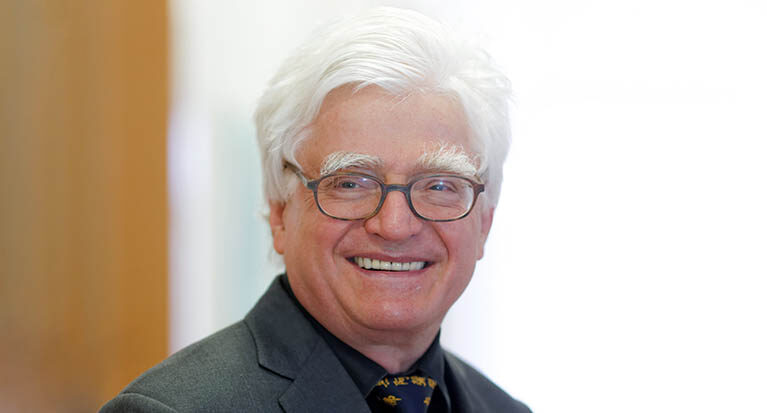
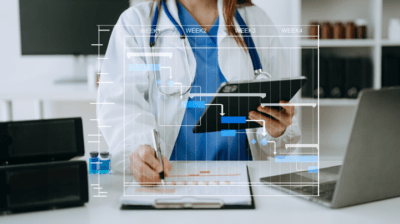
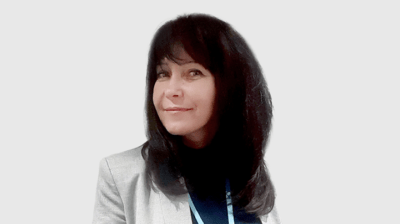
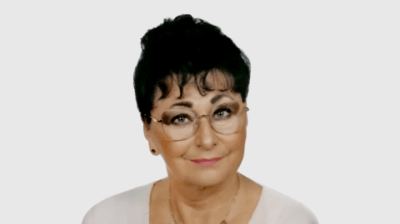
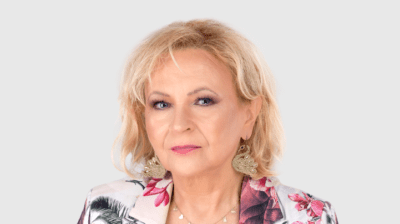
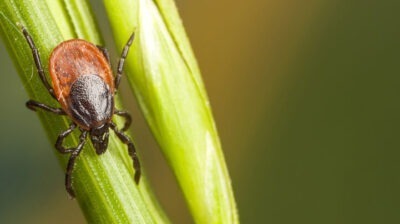
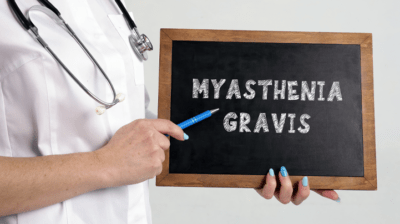
Dodaj komentarz